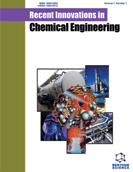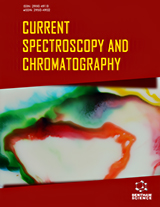Abstract
Convolvulus Prostratus, also known as sankhapushpi, is a very adaptable plant frequently used as a nervine tonic, nootropic, and rejuvenator in cases of insanity and epilepsy and has a broad spectrum of beneficial properties. Several medicinal qualities, including anxiety, neuroprotective, antioxidant, analgesic, immunomodulatory, antibacterial, antidiabetic, and cardioprotective effects, have been related to this herb in ancient literature. Numerous bioactive phytoconstituents, including kaempferol(flavonoid), ceryl alcohol, scopolamine(phenolics), and convolamine (alkaloid), are associated with the therapeutic capabilities of this herb. The Whole herb or its juice is credited with alterative, antiphlogistic, and nervine tonic action. Additionally, the involvement of C. prostratus extracts in neurodegenerative was thoroughly established. Although this significant herb has comprehensive preclinical studies, thorough clinical research and mechanistic mode-of-action studies still need to be conducted. With a detailed analysis of the research gaps, the current review aims to highlight the phytonutrient constituents, beneficial characteristics, and therapeutic properties of C. prostratus. The creation of CNS phytopharmaceuticals, derived from C. prostratus, is hoped to flourish due to the scientific upgrade on the ethnomedicinal characteristics of this herb.
[http://dx.doi.org/10.1016/S2222-1808(12)60216-3]
[http://dx.doi.org/10.1016/S2221-1691(14)60240-9] [PMID: 25182446]
[http://dx.doi.org/10.1016/j.ijpharm.2014.08.028]
[http://dx.doi.org/10.3389/fphar.2020.00171]
[http://dx.doi.org/10.1016/j.intimp.2009.02.019] [PMID: 19327410]
[http://dx.doi.org/10.1186/s13002-015-0018-2] [PMID: 25925727]
[http://dx.doi.org/10.1016/j.jep.2007.07.016] [PMID: 17720341]
[http://dx.doi.org/10.2174/138945011798109464] [PMID: 21561421]
[http://dx.doi.org/10.1016/S0009-9236(96)90054-5] [PMID: 8841150]
[http://dx.doi.org/10.1007/s10600-007-0107-0]
[http://dx.doi.org/10.1007/BF02637735] [PMID: 1176757]
[http://dx.doi.org/10.1556/JPC.18.2005.3.13]
[http://dx.doi.org/10.1007/s12010-012-9791-8] [PMID: 22843061]
[http://dx.doi.org/10.1093/carcin/22.3.409] [PMID: 11238180]
[http://dx.doi.org/10.1016/j.phymed.2015.01.004] [PMID: 25837273]
[http://dx.doi.org/10.1016/S2221-6189(13)60123-7]
[http://dx.doi.org/10.1155/2018/5751864] [PMID: 30363978]
[http://dx.doi.org/10.1016/j.jep.2009.05.038] [PMID: 19505562]
[http://dx.doi.org/10.1016/j.jaim.2017.08.012] [PMID: 29530454]
[http://dx.doi.org/10.4103/0253-7613.100383] [PMID: 23112420]
[PMID: 11491580]
[http://dx.doi.org/10.2174/187152412800229161] [PMID: 22280406]
[http://dx.doi.org/10.47552/ijam.v3i2.163]
[http://dx.doi.org/10.5530/ijper.56.4s.212]


















.jpeg)









